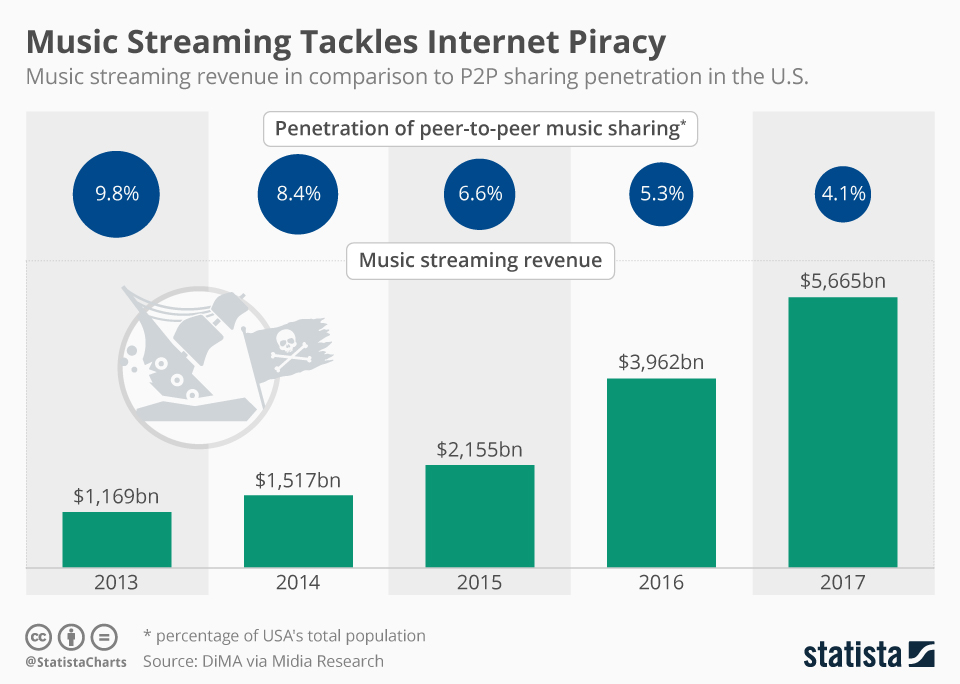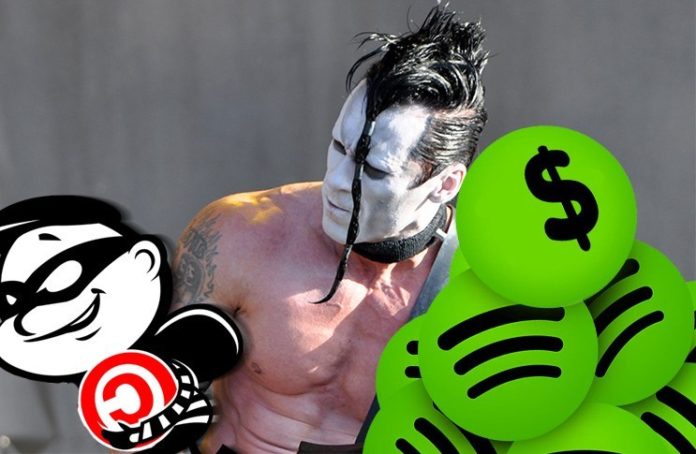“You think I want to meet all these fucking people? I don’t.”
These were the words that, back in February, Paul Caiafa, better known as Doyle von Frankenstein, said in an interview with The Liquid Conversation Podcast, when asked about his meet and greets with fans. He expressed his anger at how “scumbag fans” are stealing his music, complained that artists on Spotify don’t make any money, which forces him to resort to doing meet and greets, and, in what really sounds like an anger management incident waiting to happen, added that if he had been invited to visit the Spotify offices, “I would’ve punched them all… I would’ve went (sic) fucking mental, I would’ve started breaking everything” (he eventually went on to add that he also wanted to break things or hurt people at NAMM because they didn’t let him in one time).

While artists have riled up against copyright infringement for a long time (Charles Dickens’ first visit to the US in 1842 was largely an attempt to convince American audiences to stop pirating his books), it wasn’t until Napster burst into the scene in the late 90s that piracy became a common topic of discussion among music fans. Before that, although tape trading and CD burning were indeed a form of piracy, they were not a significant threat (despite the alarmist discourse of the record industry). Napster, and all the peer-to-peer platforms that followed, were completely different beasts, as the costs of piracy went almost down to zero; and even though the industry has certainly exaggerated on how damaging MP3 sharing actually was, the fact remains that file sharing did become a major problem.
Historically, the music industry tried to block and/or bankrupt any project that sought to broadcast music to paying subscribers. In the last few years, however, we finally saw it accepting the new paradigm. Streaming services like Spotify, Pandora, Google Play Music, Apple Music, Deezer, and others, are all part of this revolution, as the back catalogs of more and more bands are available for streaming for a low monthly fee. This has lead to a colossal decrease in illegal sharing of MP3s, as people find it more convenient to simply pay for a subscription than to go to dodgy websites to (hopefully) find the album they’re looking for.
Of course, the switch to streaming services hasn’t been well received by everyone, with many musicians and record executives complaining that streaming services pay so little that they can barely make ends meet. This has motivated artists and labels to resort to new ways to combat this decrease in revenue, with albums being released in several “limited editions,” relying heavily on vinyl releases, selling more merch, touring more often, and selling meet-and-greet opportunities to generate some quick cash.
Doyle is not alone in his apparent hatred for Spotify, as people like Gene Simmons have also raised their voices against streaming services. They see the fact that they are making less money than before as a sign of a culture war being fought against artists, resulting in their work being less valued than before. As heroic as they believe that their fight for the “starving artist” is, in reality what their words reveal is a Luddite approach to technology.
In their minds, there is some inherent cosmic unfairness in the fact that they make less money than they used to, even though this is an economic situation that affects many professions. Lawyers, for example, have seen a sharp decrease in their starting salaries, with many people graduating from top law schools only to barely make enough to survive. The reasons for this decline are many, and they include the automation of certain routine tasks, as well as the increase availability of law graduates, which lowers the price of any individual applicant. In the same way, with so many bands out there, it is harder and harder to convince any user that they should spend a lot of money to listen to any individual one. It’s simply a matter of supply and demand.

Doyle‘s anger against his own fans for his declining revenue shows that he feels entitled to his fans’ money, while also not believing that those same fans deserve his respect and appreciation. After all he wants “these fucking people,” as he rudely referred to them, to pay USD $10,000 fines for any infringements. He even suggested, in true Trumpian fashion, that the internet should be shut down for a day, so that “they” can fix this whole MP3-sharing thing. I guess now we know for a fact that he doesn’t have a side job doing IT.
The self-righteous anger of Doyle against copyright infringement (he makes sure to point out that these creative pursuits are “a fucking important job” for which he should get paid “a lot more,” since his music keeps people from killing themselves) reminds me of my own struggles with copyright infringers. After all, it was his girlfriend (and apparent business partner), Alissa White-Gluz, the singer of Arch Enemy, who last year openly slandered me (including saying that I had committed a few crimes!) for saying that when someone steals my work and profits from it, they should be held accountable. Regrettably, I only asked for a €100 donation to a charity as “payment”; in hindsight, maybe I should have asked for 10 grands, threaten them with destroying their offices, or at least say that I’d beat someone up.

Maybe, instead of being so fixated with hulk-smashing the offices of companies he dislikes, Doyle could learn a bit from his girlfriend, and see that you catch more flies with honey than with vinegar. After all, Alissa found a whole new revenue source by opening a Patreon account and asking her fans to give her money on top of what she already makes from merch sales and royalties, and almost 300 fans have already signed up in order to send her a monthly stipend (10 of them USD $200/month each!)… But that’s a whole different story.
Don’t be mean to your own fans. Never forget that the only reason why you are able to devote your life to your art is that they were willing to pay good money for it.


In the end, a discretionary consumer product is worth what somebody is willing to pay for it. The fact that so many people are only willing to pay a very small amount of money for a lot of bands’ albums is a pretty good suggestion as to what the true value is.
On the other hand, the Misfits isn’t Bach and will probably be forgotten a few years after all the members are dead, if not earlier.
Considering they’re playing arenas 40 years after they started and about 35 years after their last record, you may want to re-think that last sentence.
This whole situation made Doyle look really really really dumb. He and Alyssa have to be the most miserable couple of earth.
Absolutely.